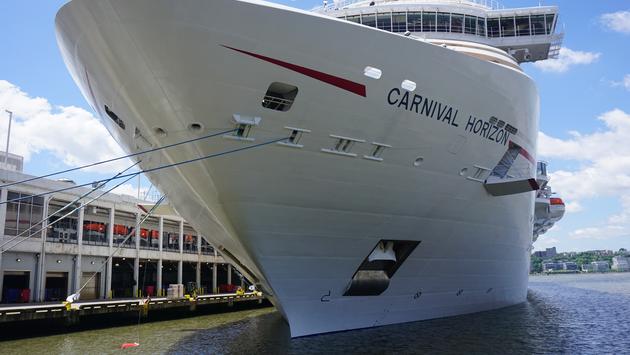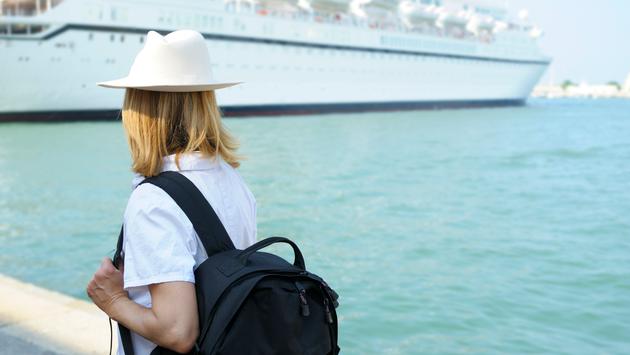Cruise Lines Battling for High Seas Return

Desperate to embark from U.S. ports after more than a year of inactivity, cruise lines were once again disappointed this week, as the Centers for Disease Control reaffirmed a November 1 timeline to lift its Framework for Conditional Sailing Order (CSO).
After months of what they viewed as CDC indecision and inactivity, both CLIA, representing cruise operators, and ASTA, speaking for cruise-selling travel agencies, earlier in the week called for CDC to immediately end the cruise embargo.
Kelly Craighead, CLIA’s CEO, called the CSO “outdated,” saying the five-month-old guidelines do not reflect operators’ “proven advancements.” Cruise protocols have “effectively mitigated the spread of COVID-19” aboard ships currently sailing in Asia, Europe and the South Pacific, said Craighead.
Moreover, the CSO “unfairly treats cruises differently,” compared with other travel, tourism, hospitality, and entertainment sectors, Craighead added. She said CLIA operators hosted 400,000 cruise passengers during an eight-month period in 2021, reporting fewer than 50 COVID-19 cases.
ASTA officials seconded the cruise lines’ complaint of unfair treatment. “With the observance of proper masking and social-distancing protocols, nearly every other form of human activity has been cleared for resumption,” observed ASTA CEO Zane Kerby.
“Inexplicably, however, in the current phase of its [CSO], CDC continues to suspend all cruise ship operations in U.S. waters,” he said. Kerby called the restrictions “particularly unwarranted” with vaccinations increasing across the U.S.
Advisors Unhappy
Predictably, the CDC’s announcement that the CSO remains in effect as part of a “phased approach to mitigate the risk of spreading COVID-19,” was met with exasperation from cruise sellers.
“It’s been five months since the CDC’s Conditional Sail Order was issued. Of course it’s unworkable,” said Stewart Chiron, a top Miami-based cruise travel advisor popularly known as “The Cruise Guy,” in a Twitter post Wednesday.
Chiron added, “It’s incomplete too. Essentially it was an extension of the No-Sail Order. Time for CDC to rescind and work to reopen U.S. ports.”
“This is a silly and embarrassing statement from CDC,” said one retired cruise line official and industry consultant in a Twitter post. “No update in five mos [sic]? Even @CDCDirector doesn’t seem to know what’s going on. Cruise segment singled out like no other in travel and tourism.”
This won’t be the first time that cruise operators and even cruise-selling travel advisors have complained of a tilted playing field that unfairly impacts cruise lines compared with other hospitality segments.
Prior to serving as CLIA’s director of public relations from 2003 to 2006, I covered the cruise industry as a trade journalist for nearly 20 years. While reporting on H1N1 virus outbreaks a decade ago, I couldn’t fail to notice how cruise ships were singled out as particularly hazardous, even as similar outbreaks occurred on land all around the country.
One key difference was that cruise ships were (and remain) bound by CDC regulations to report even minor outbreaks. U.S. hotels and resorts on the other hand are not subject to such requirements, yet few consumers of course are aware of this distinction.
Indeed, unfamiliarity is unquestionably a big part of the equation when it comes to the cruise lines’ treatment. Cruise companies operate in a multi-jurisdictional realm that can seem confusing.
For example, while the leading cruise lines are based in the U.S., nearly all register their ships in foreign countries to take advantage of favorable taxation scenarios. Nevertheless, those same vessels are tightly regulated by a host of U.S. and foreign governmental and maritime agencies.
Cruise ships are additionally subject to unannounced CDC health and safety inspections, the results of which are publicly available. I’ve often remarked that cruise ships are unquestionably the cleanest travel environments.
The cruise lines’ emphasis on onboard cleanliness was established long before the COVID-19 pandemic emerged, but anyone who hasn’t taken a cruise is almost certainly oblivious to this and other aspects of cruise vacationing.
In fact, despite its development from a travel niche during the 1980s to the mainstream vacation choice it is today, more than two-thirds of Americans have never been aboard a cruise ship. Many of my travel journalism colleagues have roamed across the world without ever embarking aboard a modern cruise ship.

Unfamiliarity Breeds Contempt
Thus I think it’s easy for folks who’ve never experienced a cruise ship to regard them as sedate, floating resorts for old and wealthy people rather than the versatile vacation environments they represent to an increasingly diverse audience of multi-generational travelers.
Similarly, I believe few recognize the hundreds of jobs and livelihoods tied to each cruise ship call. The industry supports nearly 450,000 American jobs, contributing $55.5 billion annually to U.S. GDP according to CLIA data.
Municipalities around the U.S. have come to rely on cruise lines for income including millions of dollars in local taxes and port fees. Meanwhile, hotels, restaurants and suppliers of transportation, goods and services all benefit from cruise activity in U.S. cities.
Of course, all of that ceased with the pandemic’s shutdown of cruising last March. More than one year later, operators await CDC’s go-ahead. It’s not hard to understand their frustration. It’s also not out of the question to wonder if by November CDC will actually follow through on its stated intention to withdraw the CSO.
Clearly the cruise lines aren’t waiting around. This month Celebrity (Sint Maarten), Crystal Cruises (The Bahamas), Regent Seven Seas Cruises (Barbados) and Royal Caribbean Intl. (Bahamas and Bermuda) all announced summer 2021 departures from Caribbean ports.
With the new itineraries, cruise ships will return to the industry’s main region of deployment despite the CSO, which does not apply to departures from foreign ports.
It reminds me of another significant difference between hotels and resorts and cruise vessels that I learned while working for CLIA: unlike resorts, cruise ships are mobile.
